The combat beards in the Special Operations Forces community are not new. The military community has seen various comebacks through time, and they can resist all it wants but not beards. Today, the US Special Operations Forces have popularized combat beards that almost every operator is bearded during deployment, but still, it is forbidden for the regular soldiers.
Military beards and rules
A regular soldier will be required to maintain standards following AR 670–1 (for Army personnel) much in the same way they would adhere to the grooming standards when not deployed. This means shaving every day.
A growing beard has been forbidden in the military since World War II. And not because of some regulations; it is forbidden because there were many gas attacks at that time, and it is widely known that you cannot use regular gas masks if you have a beard. It needs to be applied skintight to work effectively.
The only way I can see a beard being effective to combat is by blending into the environment (If everyone around you also has beards). And that is the reason why the Special Operations community grows beards when deployed. Of course, it is less often that special forces operators would be exposed to the use of military gas weapons. Some exceptions will allow service members to wear a beard for religious reasons.
In recent times, others conducted studies to explore how others see individuals with (or without) facial hair. Women rated men with facial hair as more attractive and appearing healthier than those who were clean-shaven — and now male service members want significant change.
Rules for the beards in the US military
The rules in the US military vary. For example, the Navy does not allow mustaches alone but does allow full-set beards. Mustaches but not beards are permitted in the Army and Air Force. However, members of the Special Operations Forces and Special Forces regiments can wear beards if based outside their home camps.
But until the US military welcomes the beard, it’ll remain a rare sight on our best warriors. That is enough reason to admire the most famous military combat beards in history.
Rules for the beards in the British Army
Beards are not permitted in the British Army, Royal Marines, and Royal Air Force, but mustaches are. The main exception to this rule is with Pioneers, who also wear aprons and carry axes, and here is an excellent example of a British Army pioneer. Also, military personnel was encouraged to sport facial hair in the recent war In Afghanistan to better blend in with Afghan men whose use of facial hair is seen as a sign of authority and masculinity.
Most famous combat beards in history
Cowboy

A backdated in 2002 when Scott Nelson photographed a US Army Special Forces unit in Afghanistan, the beards were rare. Soon as the Unit began to search for the terrorists in the area, Scott noticed one of the operators with a full-grown beard. The operator was responding to the nickname “Cowboy.” He took a photo of him, and he shrouded in mystery since then. His real identity remained unknown.
This photo inspired people so much that Danger Close Games used his likeness as inspiration when finding and outfitting the model for their Medal of Honor game.
It could be considered a tactical environment and blending into the area as the answer for this otherwise too-long-in-my-opinion beard.
Gen. Ambrose Burnside
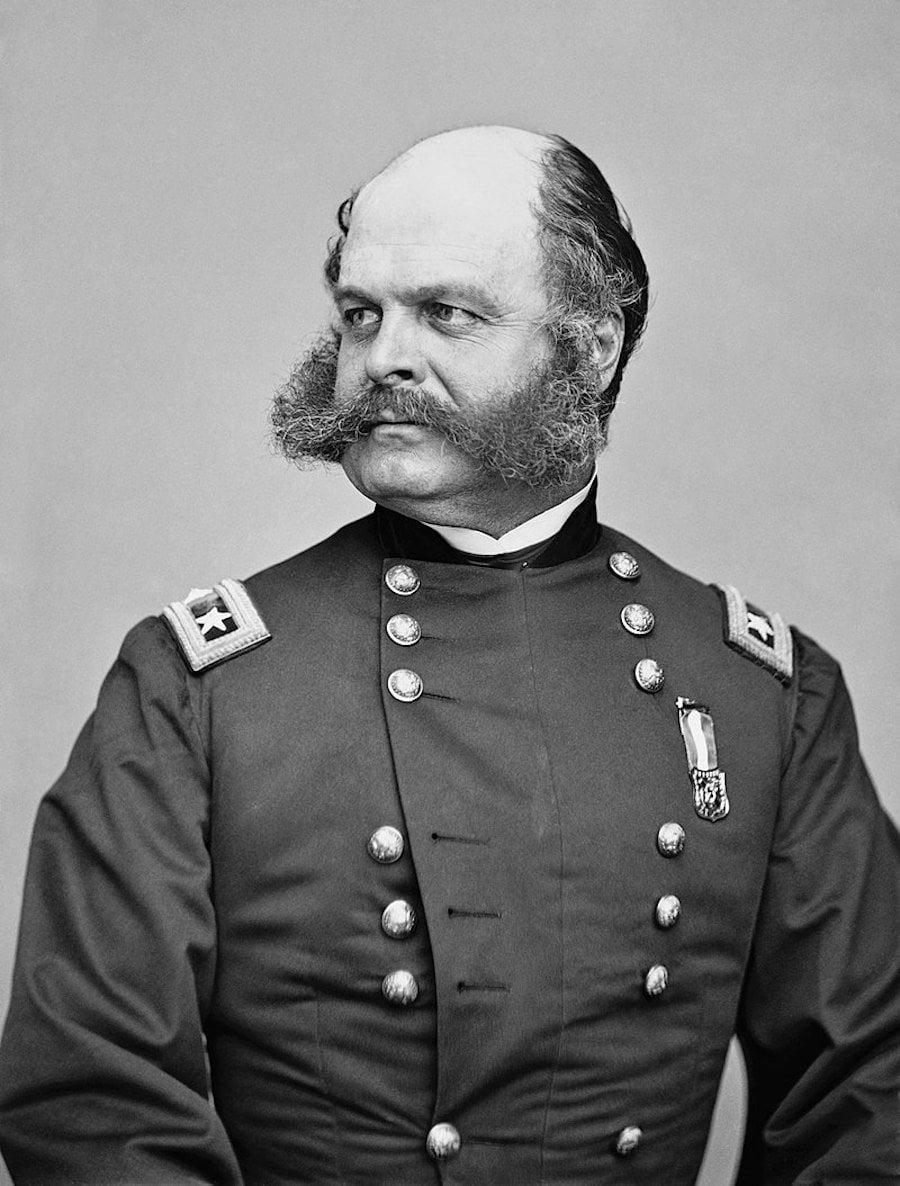
Despite his overall impressions on the battlefield and all of Ambrose Burnside’s defeats, he had the best facial hair ever. He may be the worst general in US military history. Still, in his defense, it should be fair enough to say that, for example e.g., Antietam and the Battle of the Crater involved frontal assaults with inadequate preparation.
This was because Ambrose Burnside knew he was incapable of independent command and said so; he was a classic victim of the Peter Principle, continuously being kicked up the chain of command for posts he neither had the ability nor the desire for. He lacked the talents required for effective high command, which showed badly in his performances.
No list of military beards would be complete without the man whose whiskers were so incredible that the world named a patch of the beard after him.
Prince Harry of Wales
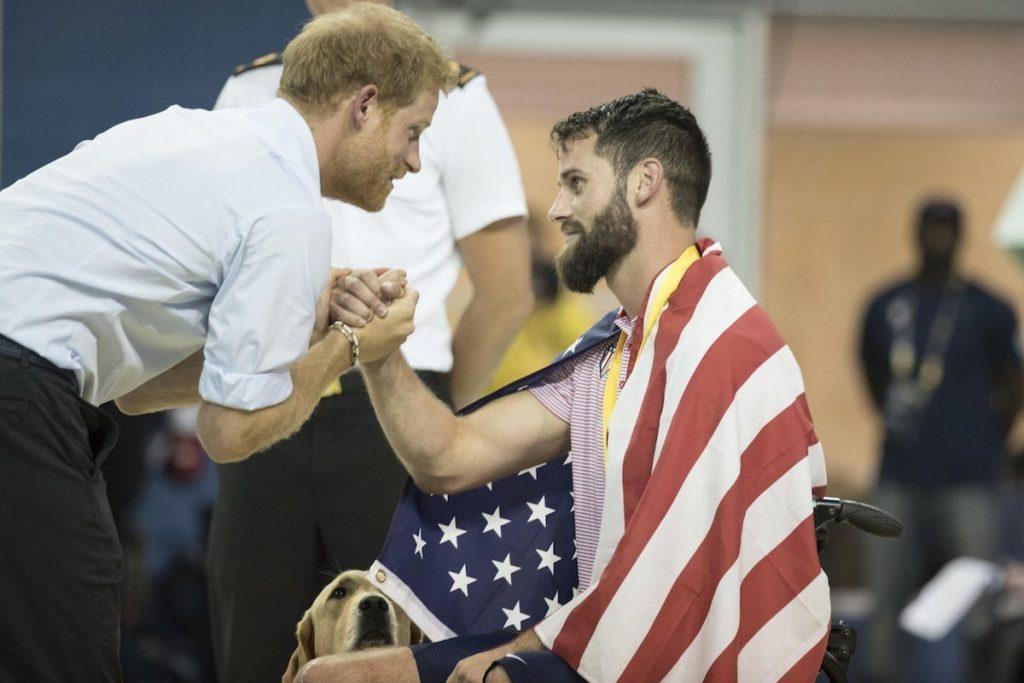
The pictures of the bearded prince in his flight suit at the 2015 Battle of Britain Flypast are why I am in full favor of allowing beards in uniform. Concerning Prince Harry, he has started to sport a beard during several official events such as remembrance. By Army standards, while wearing the uniform, he should not; however, who would argue with him?
Prince Harry served from 2005-to 2015, even secretly deploying on combat missions in Afghanistan before his position was publicized and he was pulled out for security reasons. He’s the epitome of cool, he fully recognizes the meaning and importance of service, and he’s proof that a military beard can still look professional and clear.
Ulysses S. Grant

Ulysses S. Grant was the general that broke General Robert E. Lee and the Confederates after numerous generals under President Lincoln failed to end the war. He was probably one of the most skilled and adaptable generals in the Union. He led a campaign in the west that split the Confederacy in two. In the Eastern Theatre, it showed the Army of the Potomac as Supreme Commander in defeating the Confederacy.
His aggressive yet controlled battle tactics, unpredictable troop movements, and unparalleled leadership led the Union to victory. He is hailed as one of America’s war heroes, contributing to saving the Union and piecing back the country.
After the Cold Harbor assault, he became known as the Butcher. Ulysses S. Grant also served two terms as US president. That is the beard of victory right there.
Maj. Gen. George Crook
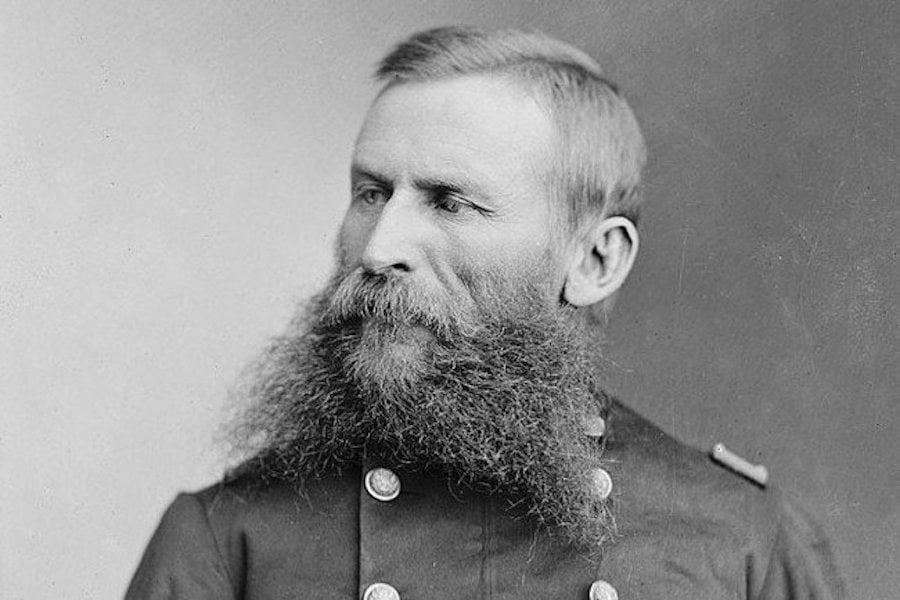
George Crook cut his teeth fighting Native American tribes in Oregon before the Civil War. When he was called on to serve the Union, he used the same tactics in the face of the rebel enemy. His beard is exactly the kind you’d expect from a man the Apaches called “Grey Wolf.”
Conclusion
Today, the beards are not related only to Hollywood movies, but movies don’t follow regulations and have great marketing images. But there is some accuracy to the beard and hair-cut “Relaxed Grooming Standards” by SOF operators and Field Advisors.
There are several reasons for growing beard while deployed, including the relaxed grooming standards being a “perk” of sorts, but it’s much more practical. As I have pointed out, they will have to “blend in” with the locals and current operations involving the Middle East and Afghanistan, where growing a beard is viewed as a sign of manhood.
However, it’s well-known that the military has strict grooming standards, so seeing someone who doesn’t adhere to that can cause hesitation and even confusion because they don’t look like the American military. However, in the end, it depends on the SOF operator’s personal opinion.
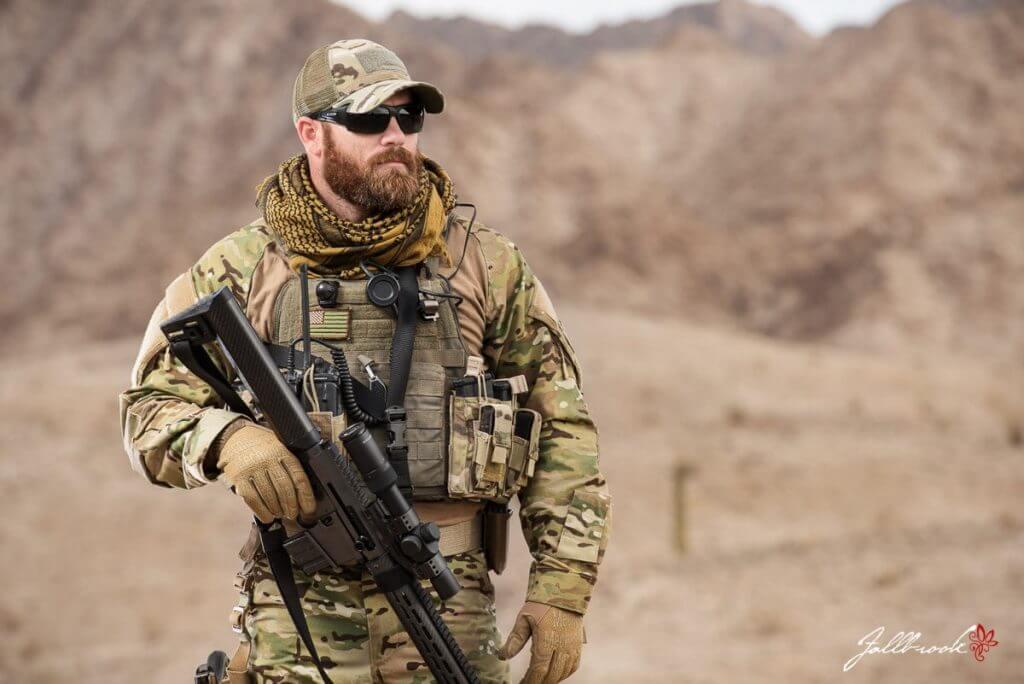
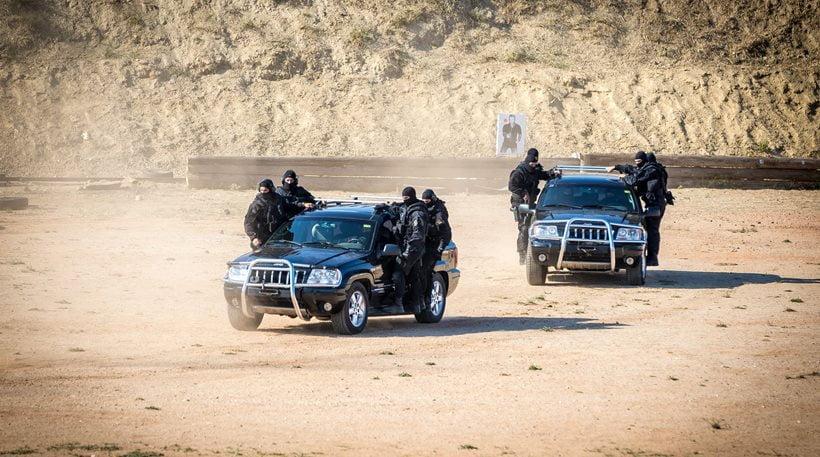
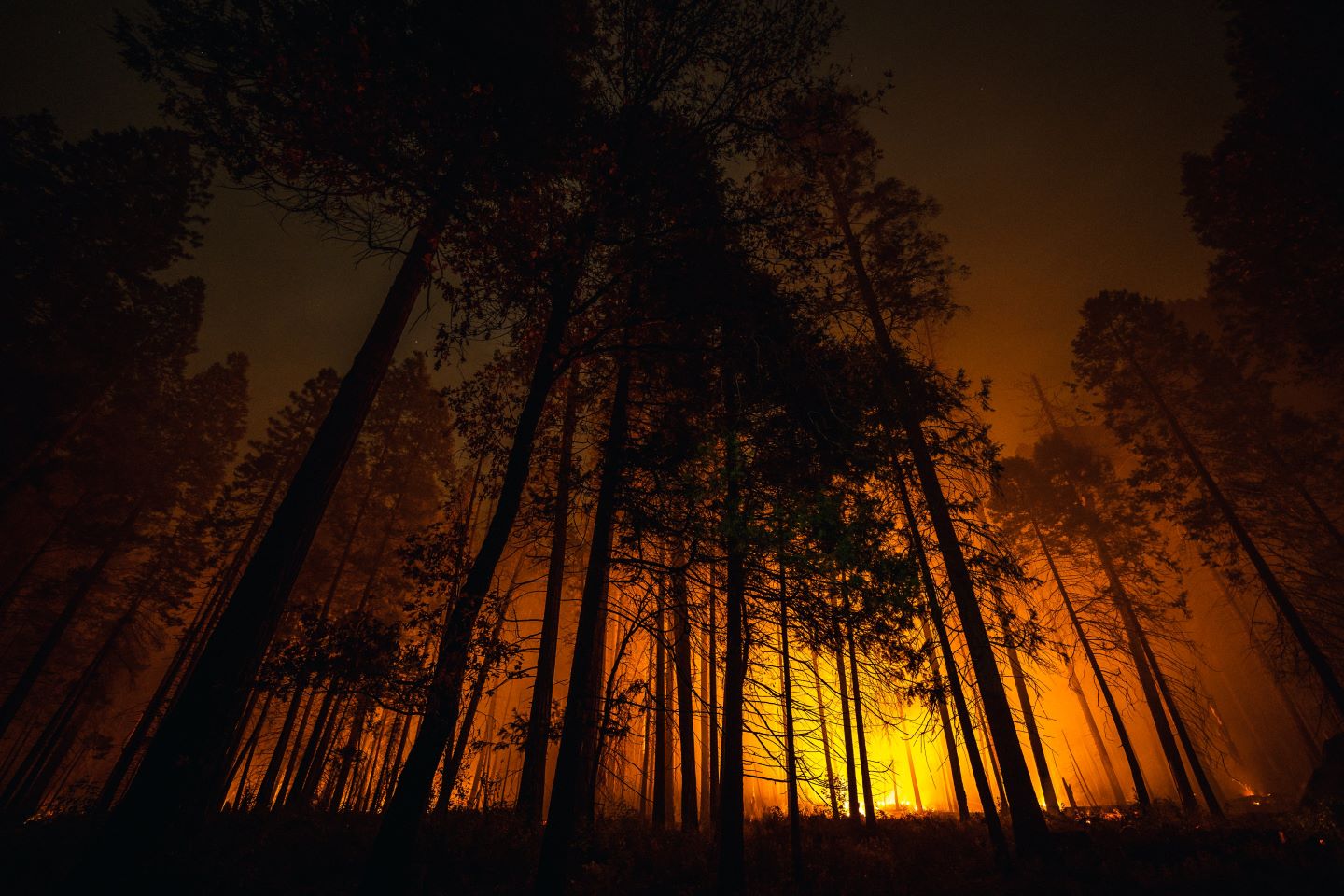





The Navy dropped the beards for NCOs in like ‘83-‘84. I thought it was lame. I understand the gas mask issues but the blending in with the local population is a big advantage. Shaved and high and tight is a beacon for the locals even in the states. They should be well kept, but I think they are good.
Side charging BCA upper?? Lmfao